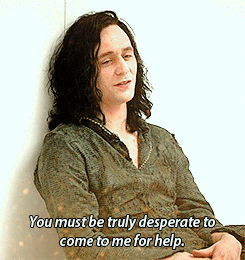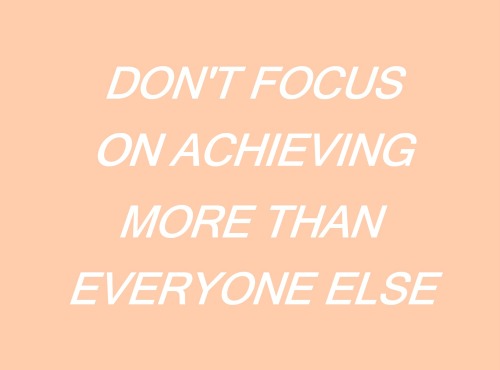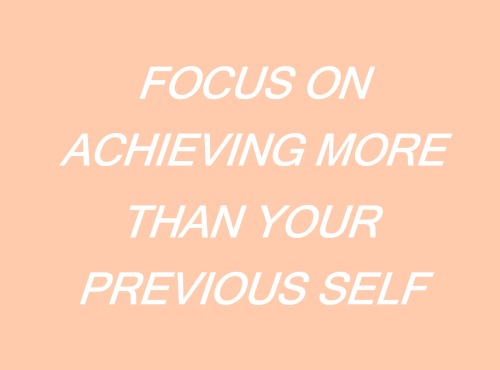On Programming
on programming
When learning a new language don’t waste your time copying down syntax, it will come naturally after practice. But, if you really need syntax help badly then I can reassure you that most high end languages are heavily documented.
I say this so that you don’t waste all your time taking notes on basic syntax, instead use your study time to copy down any relevant code examples in the textbook, tinker with them and analyze them, comment on them. Practice, practice, practice.
The only time you should take notes is for flowcharting or pseudocode. And of course, notes on concepts.
More Posts from Programmingravenclaw and Others


tumblrfolk, we are so much more skilled than we think
one thing I want to say today relates to my current job. (As you guys know, I’ve left off working in science labs to work an office job in sci comm. My role is kind of … nebulous and involves a lot of “oh, Elodie can help you with that, she does weird stuff. Train Elodie on that.”)
Because it’s an office job, the mentality is for everyone to present their workflows as incredibly difficult and skilled, requiring a lot of training and experience to do properly. Which is fair enough! These skills are difficult!
“Elodie, today we are going to train you to use… A HIGHLY COMPLICATED AND DIFFICULT WEBSITE INTERFACE. You will need to take a lot of notes and pay careful attention, because it is extremely advanced. ARE YOU READY”
“… This is Wordpress.” “…No it isn’t! it says something different at the top. And it’s very complicated, it’s not something you can just know already.” “Nah son, don’t worry, it’s Wordpress. I mean, God knows I don’t blog much, but I can manage me a bit of Wordpress, it’s cool.”
“No. You can’t. Don’t worry, it’s very difficult. Now sit still and be trained on how to upload a photo to Wordpress.”
“All right.”
—-
“Elodie, do you think that you can MANAGE SOCIAL MEDIA? It is INCREDIBLY HARD and may involve THE HASHTAGS”
“… I think I’ll manage.”
—-
“Elodie, can you put a HYPERLINK in a thing? Think about it before you answer.”
“Is it like a BBCode kind of thing, with the boxy bracket things, or do you want it in HTML, with like angley bracket things?”
“It is a button that you press that says HYPERLINK.”
“I can do this thing for you.”
—-
“Elodie, can you write a punchy summary that will make people want to click on a special link that says “read more” to read all of the text?“
“Probably?”
—-
“Elodie, this is how to use TAGS on CONTENT. TAGS on CONTENT are important because - because of THINGS. Things that are too arcane and mysterious for anyone below the level of Manager to know.”
“Cool, I can tag stuff for you.”
—-
“Elodie, this is obviously a ridiculous question, but can you edit videos?”
“Not very well, and only if you want to make it look like there is sexual tension between characters from different forms of visual media, or perhaps to make a trailer for a fanfiction? Which is not necessarily a good use of my time and I’m not sure why I felt it was so cool to do to begin with…”
“What?”
“Actually, upon further reflection: no. No. Nope. I can’t edit videos. They’re completely beyond me. Not in my wheelhouse. Hate videos. Hate them. No innate skill whatsoever.”
“That’s what we thought”
—-
“Elodie?! You can use PHOTOSHOP?!”
“Yeah, I mean, I usually just use Pixlr. It’s free, it’s online, it’s powerful, you don’t have to download anything…”
“but you are not a GRAPHIC DESIGNER!!” “Er… no.”
“Next you’ll be telling us you can MAKE AN ANIMATED PICTURE.”
“I mean, I haven’t really done a lot of it since Livejournal, and they weren’t that good anyway, but yeah… I can do you reaction images.”
“THAT IS WITCHCRAFT”
“Yes. Definitely.”
—-
What I’m trying to say is: a lot of people talk a lot of crap about what we Millenials do on the Internet, because there is NO CAPITALISTIC VALUE in the screwing around we do with our friends. “Ughh why are you ALWAYS on the computer?” our parents whined.
“How did you make the text go all slanty like that?” our bosses wonder.
We have decades of experience in Photoshop. We know how to communicate; we can make people across the planet care about our problems. We know how to edit media to make two characters look like they’re having the sexual tensions. We can make people read our posts, follow us, share our content. We run and manage our own websites - and make them pretty. We moderate conversations, enforce commenting policies, manage compromises, lead battles, encourage peace, defend ourselves from attack, inspire others, and foster incredible levels of communication.
We produce our art. We advertise our art. We engage with others through our art. We accept constructive criticism and dismiss destructive trolling of our art. We improve our art. Our art gets better.
We narrate our stories.
All by ourselves. Our pretty blog backgrounds, custom-edited themes, tasteful graphics, punchy content, clever gifs, our snappy putdowns and smart-ass text posts, even our familiarity with fonts and composition - all of these skills we’ve casually accumulated for fun/approval are MINDBLOWING LEVELS OF COMPETENCE IN THE WORKFORCE.
When these skills are sold to you - when they’re packaged and marketed, and when you pay to consume them and have the Elders rate you on them - they are incredibly valuable. They are Media and Communications degrees. They are marketing internships. They are leadership workshops. They are graphics design modules. They are web design courses. They are programming courses. We are good at this shit; we have it nailed down.
You can’t put “fandom” or “blogging” on your CV, but you deserve to. You should get this credit. You should claim this power and authority.
Claim these skills. They are valuable. They are important.
Everything you have ever done is a part of your powerful makings.

hey hey hey everyone!! as a self-proclaimed mathlete & absolute math nerd, i figured i could share some quick little tips for such an amazing subject! soooo here you go:
practice, practice, practice!!
I always say that practice is the most essential aspect of studying & learning math- and many other subjects! This can take the form of homework (mini tip: always do your homework if you are able!!! it’s only to your benefit! even if it’s not for a grade, try your best to work on it anyway), practice problems from a textbook or workbook, old questions from a past quiz or test, etc. Even just a couple of practice problems every day, or some quick q’s before a test, can help a lot. Remember, repetition is a key form of revision!
take active notes
Math is a very active subject, so it’s important for your notes to reflect that. Basically, if you’re working on an example problem in the middle of your notes, write it down too. These problems can come back in quizzes or tests, and they really help reinforce material when you’re reviewing. Another way to keep your notes active is by drawing diagrams!! Diagrams can be essential for certain topics, so please don’t ignore them, even if you think you can remember what that graph looks like. Also, if you ever need to jot something down in the margins of your notes, do it! All of this will really help when you review.
know your calculator
Whether you need to know how to use one, or how to survive without one, calculators are pretty much always relevant when it comes to math. If the subject you’re learning allows it, you should always have a calc nearby, and you should know its basic functions. That doesn’t mean know how to add & subtract (unless that’s all that’s necessary for you), it means being able to work the graphing function, or how to enter data into your calculator for statistical evaluation, how to find certain functions in your calc, etc. It’s also very important to know how to work without your calculator. As you progress in math, there will be certain things that you just need to know how to do, because they take too long with a calc. Basically, make sure you understand what you’re doing with your calculator, so that you can understand how to do it without your calculator.
keep track of everything!
Math is a lot of data & different steps that you need to keep track of. When working on something, know where your numbers (or other forms of data) are, make sure you aren’t missing any! Do your best not to skip steps, even if you’re great at working in your head. Missing data & skipped steps are major sources of error and tiny mistakes that can mess up a whole problem. Also, know your common errors! Do you tend to skip a certain step because you think you’ve got it? Do you sometimes misinterpret graphs or data? Once you’ve figured that out, be extra careful with the specific problems that you have trouble with. Keeping track of your work & your mistakes can help you improve a lot!
memorize what needs to be memorized
A lot of math can be done with basic understanding of how to work a problem & the process to find a solution (these things are generally memorized with practice!) but there are some things that just need to be memorized. Whether it’s elementary functions like addition & division, or basic trigonometry, if it’s not a process you can learn through understanding, and need to know, make sure you know!! Some things can be memorized with practice, and others require different methods of memorization (I typically write & rewrite things multiple times). You can find some great posts on memorization here!
more masterposts!!
stem studying
study methods
precalculus
algebra
geometry
(ap) chemistry
ap world history
studyblr-ing
the everything book
the pomodoro method
how to use flashcards
how to use sticky notes
welcome to high school
tiny study spaces
what’s in a pencil case
i really love math & i wish everyone could see it like i do, so i hope this was helpful! keep shining like the star you are and don’t forget to be awesome today!!
- Aza


concentrate on becoming your best self rather than trying to be somebody else
Roses are #FF0000
Violets are #0000FF
I’m in physics and I’ve turned into a nerd
Things Programmers Comment #60
(Knowing my professor will read the comment) //I don’t know how this works, or why, but it does, and I think that counts for something
(submitted by @usurp-er)
How can it be such a stupid error if I had to search three hours to find it?
Probably every programmer ever (via fyeahcode)
Here is thing I learned when I was 29, which I now give away for free: If you want to do a thing, do it now, or as soon as feasible. Because there might not be a later. If it is a complicated or expensive or hard thing that takes many stages or has a steep learning curve, start working on the parts you can work on while you can work on them, then move on to the next thing. Accept that there will be a lot of failures along the way, and that you can come back from nearly any mistake that doesn’t involve making a left turn in front of an oncoming semi. Concentrate on yourself and what you can do, and don’t rely on other people to fix things for you, even though you might love them or they you. (This doesn’t mean you can’t love friends or family or partners. Friends and family and partners, in the long run, are the thing other than Useful Work and Adventures that make life worthwhile. Well, all that, and a really nice coffee and tea kit in the kitchen and the skill to use it. But that last thing isn’t terribly expensive unless you make it be.) But to succeed at a thing–a job, a relationship–in the long term, the thing is: You Must Commit, even though commitment is scary. And commitment is scary because once you’re in you’re in. It’s not bobbing around close to the shore, paddling with your feet. It’s both feet and swimming as hard as you can out where the rip currents and the sharks are, where the water turns blue. You can’t hold back because you’re afraid of getting hurt: you have to accept that you are going to get hurt, and put your hand in the fire of your own free will. It’s like climbing. You can make sure you’ve got good ropes and a belayer you trust (you SHOULD make sure you have good ropes and a belayer you trust!), but there’s moves you can’t make unless you’re willing to risk falling. I’m not saying follow your bliss off a cliff, in other words: part of being prepared and committed is having the right kit, whether it’s money in the bank for the lean times when starting off as a freelancer, or a partner who supports your work, or being young enough that starving in a cold room for a few years with pneumonia is romantic (I have the T-shirt!). That’s why it’s scary. It’s scary because you are taking an actual chance. But: things don’t work out the way you want them to if you just kind of drift along seeing what will happen. Nice things might happen! …but they didn’t, for me. Basically, what I figured out was that I had to be a protagonist if I wanted anything to happen, and part of being a protagonist was accepting that I might fail. And then have to deal with that failure. And that if I didn’t do it I would more or less inevitably fail, but I could pretend to myself that it wasn’t because I wasn’t good enough and that I didn’t know why. Seeking success, in other words, meant letting go of a layer of ego defense. This realization directly led to me having the career I always wanted, and doing pretty well at it. It also led to me having the best relationship of my life. I wish I’d learned it when I was sixteen, rather than twenty-nine, but I had some things I had to work through first.
So that thing you want to do? Assuming it’s not illegal or immediately fatal? Do it now.
-
 chrtzshtpstng liked this · 6 years ago
chrtzshtpstng liked this · 6 years ago -
 agirlcoding liked this · 6 years ago
agirlcoding liked this · 6 years ago -
 losstarot liked this · 7 years ago
losstarot liked this · 7 years ago -
 intellectula liked this · 7 years ago
intellectula liked this · 7 years ago -
 jecng-han liked this · 7 years ago
jecng-han liked this · 7 years ago -
 lokisminion4evah reblogged this · 7 years ago
lokisminion4evah reblogged this · 7 years ago -
 cool-notes-blog1 liked this · 7 years ago
cool-notes-blog1 liked this · 7 years ago -
 mikeyperes liked this · 7 years ago
mikeyperes liked this · 7 years ago -
 tashastarkprograms reblogged this · 8 years ago
tashastarkprograms reblogged this · 8 years ago -
 tashastarkakaironwoman liked this · 8 years ago
tashastarkakaironwoman liked this · 8 years ago -
 bunny-idol liked this · 8 years ago
bunny-idol liked this · 8 years ago -
 robotechmaster liked this · 8 years ago
robotechmaster liked this · 8 years ago -
 the-damsel-next-door liked this · 8 years ago
the-damsel-next-door liked this · 8 years ago -
 games-for-gamers liked this · 8 years ago
games-for-gamers liked this · 8 years ago -
 justcantblog reblogged this · 8 years ago
justcantblog reblogged this · 8 years ago -
 cheyenne-no-wyoming liked this · 8 years ago
cheyenne-no-wyoming liked this · 8 years ago -
 devilwater reblogged this · 8 years ago
devilwater reblogged this · 8 years ago -
 technologycentrality reblogged this · 8 years ago
technologycentrality reblogged this · 8 years ago -
 nabznabby liked this · 8 years ago
nabznabby liked this · 8 years ago -
 anonymeth liked this · 8 years ago
anonymeth liked this · 8 years ago -
 spectralseye-blog liked this · 8 years ago
spectralseye-blog liked this · 8 years ago -
 hoursofreading liked this · 8 years ago
hoursofreading liked this · 8 years ago -
 programmingravenclaw reblogged this · 8 years ago
programmingravenclaw reblogged this · 8 years ago -
 clayrefelloffthecliff liked this · 8 years ago
clayrefelloffthecliff liked this · 8 years ago -
 gmd599001 reblogged this · 8 years ago
gmd599001 reblogged this · 8 years ago -
 studyneering reblogged this · 8 years ago
studyneering reblogged this · 8 years ago -
 slurppi liked this · 8 years ago
slurppi liked this · 8 years ago -
 mechonomy reblogged this · 8 years ago
mechonomy reblogged this · 8 years ago -
 sageprints-blog reblogged this · 8 years ago
sageprints-blog reblogged this · 8 years ago -
 fucking-up-everyday reblogged this · 8 years ago
fucking-up-everyday reblogged this · 8 years ago -
 caeiliis liked this · 8 years ago
caeiliis liked this · 8 years ago -
 jolirevette liked this · 8 years ago
jolirevette liked this · 8 years ago -
 ginkgoleaves reblogged this · 8 years ago
ginkgoleaves reblogged this · 8 years ago -
 ginkgoleaves liked this · 8 years ago
ginkgoleaves liked this · 8 years ago
Full-time Computer Science student, reader, and gamer with a comics addiction.
121 posts
